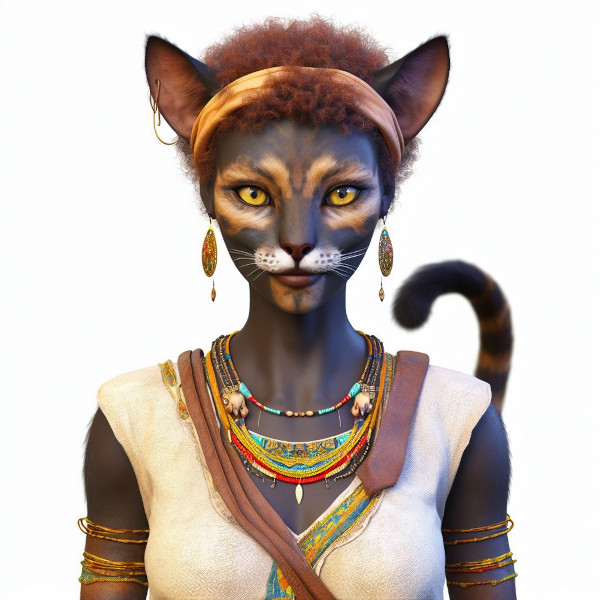A new Alien Race has been added to the Bestiary for Fiends and Phantasms & NowUltraRPG
Canisi/Wulfaz (aka Space-Mutts and Space-Werewolves)
A race of intelligent space aliens that have abilities of mimicry and shapeshifting. Some of their main features are:
- They are moderate size humanoids ranging from 120 pounds to 150 pounds who have subtle canine characteristics in their normal state.
- They can mimic those around them to a remarkable extent. Upon casual observance they can blend in quite well, but upon close examination their form will seem less convincing and somewhat unsettling.
- They prefer fresh meat, blood, and bone as their diet, although they will make due with vegetarian fare if that is all they can get. They also prepare a pemmican type preserved meat which they will often carry along with their other equipment.

Normal State: In their normal state, they are moderate size humanoids with subtle canine characteristics. They have a passive and philosophical nature, and enjoy learning about different cultures and species. They are friendly and curious, but also cautious and secretive about their true identity.
Stats for Normal State:
- Hit Dice: 2d8+2
- Hit Points: 11
- AC: 12 + (plus various tech armor)
- Initiative: +2
- Ray Gun Attack: Two per turn/+3 (2d6)
- Laser Rifle: +5 (3d6)
- Hand Held Force Field: +3 to AC when activated, otherwise a small canister attached to the utility belt
- Utility Belt: (has as many cool things as the GM decides is appropriate)
- Mimicry: In normal state the Canisi can disguise themselves to appear as the other humanoids around. This is done partly by clever use of clothing, partly by a chemical they exude that discourages inspection, and partly by physical changes they are able to maintain to their appearance. On close inspection their mimicry can be discovered on a Skill Check DC > 14.
Werewolf State: However, in their werewolf state, they transform into massive beasts with fearsome fangs and claws. They retain their prior mental state and knowledge, but become more aggressive and assertive in character. They require a great deal more food to sustain themselves in this form, and will hunt for prey or scavenge for carrion.
Stats for Werewolf State:
- Hit Dice: 3d8+4
- Hit Points: 19
- AC: 13 +
- Initiative: +3
- Claw Attack: Two per turn +3 (1d8)
- Bite Attack: Once per turn +5 (1d8)
Conversion Process: The conversion process between their normal state and their werewolf state is triggered by either a planned decision or an attack from an enemy. During the conversion process, they are overcome by a primal hunger, and will increase in size and weight by 50% in a process that may appear gruesome and frightening to the uninitiated. They will require huge amounts of food to accomplish this metamorphosis; something they will often acquire by consuming their attackers if under assault. If the conversion is planned, they will have the food prepared and waiting for them. If they are unable to consume the necessary food during metamorphosis, they will fail to change, and revert back to their normal form in a weakened state until they have time to rest and eat.
When they convert back from the werewolf state into their smaller humanoid form, they will expel the surplus flesh and blood in a manner that many will find distasteful. They appear to vomit the substance in a congealed format that is actually a metabolic production that is quite nutritious and highly prized by the Canisi themselves. They call it congelate, and over time it becomes firmer and less pungent. It is also edible by humans, if not terribly palatable by them.
Culture and Name: Although Canisi/Wulfaz familiar with the human legend of the werewolf do not take offense at being referred to as Space-Mutts or Space-Werewolves, they prefer Canisi or Wulfaz depending on their chosen form. They have a rich and diverse culture that values harmony, wisdom, and adaptability. They are often found as explorers, traders, diplomats, or spies among other species.

